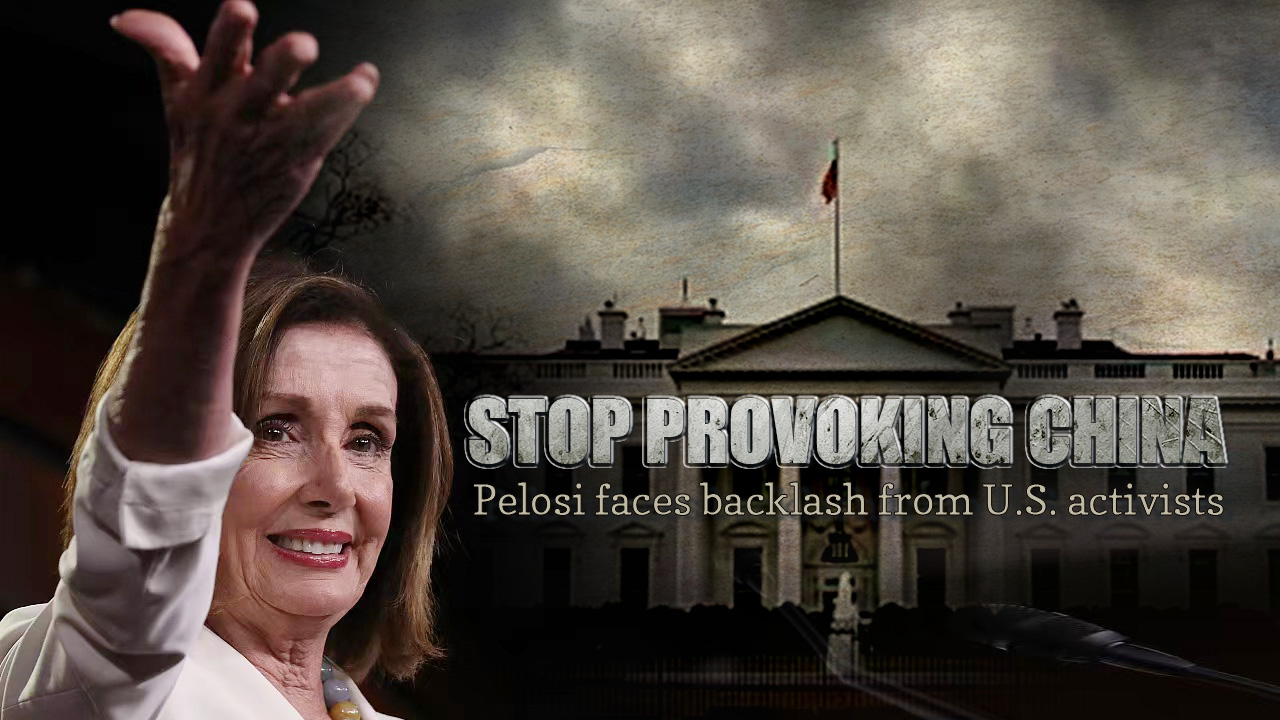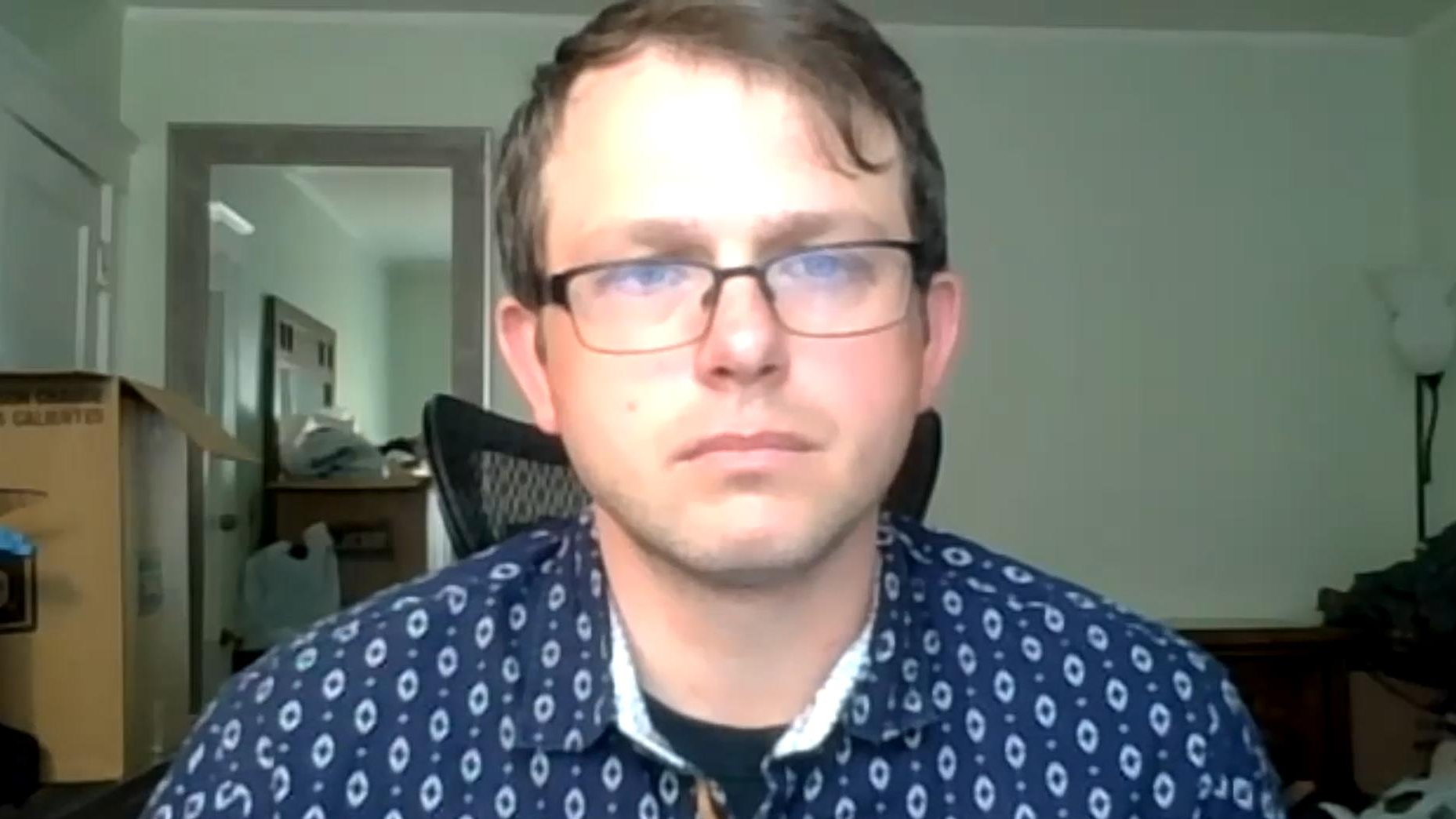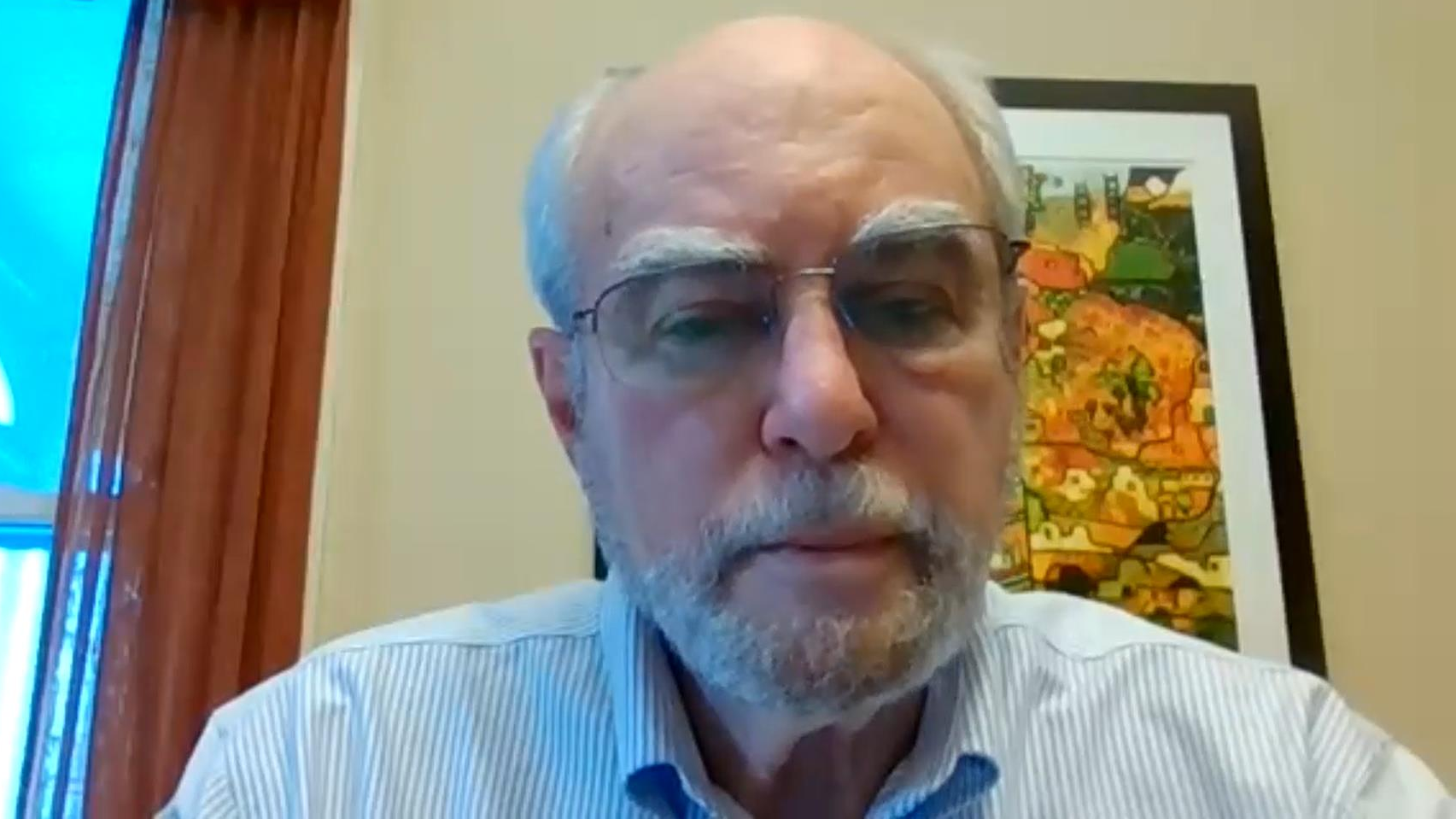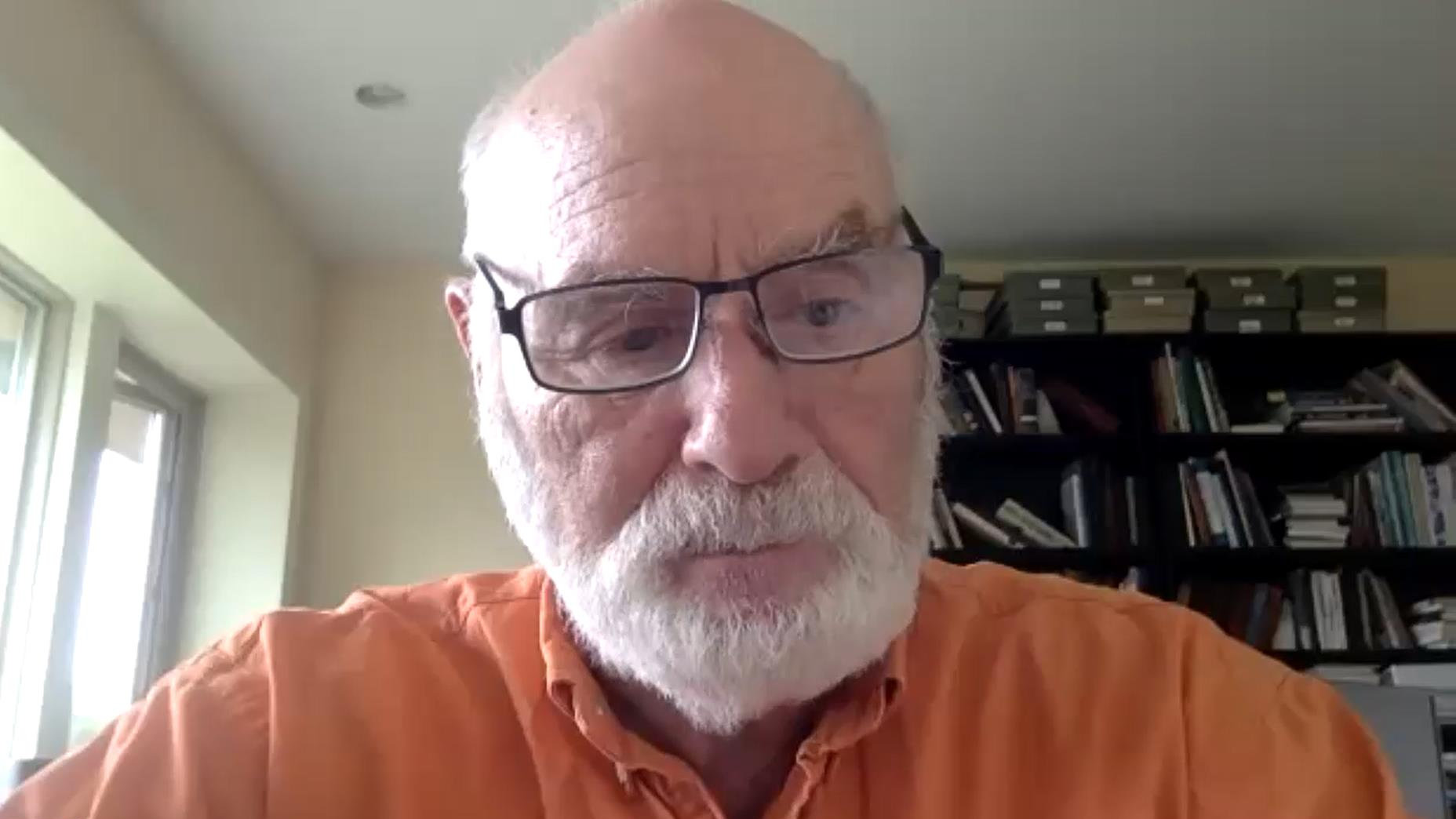08:12

On August 2, 2022, U.S. House Speaker Nancy Pelosi flew into Taiwan island, despite stern warnings from China. Her visit created an international stir sparking a geopolitical confrontation between Beijing and Washington. Over 170 countries and international organizations have already condemned Pelosi's visit as a reckless, dangerous and irresponsible provocation. Significantly, Pelosi is also facing criticism at home with many American peace activists expressing grave concern and outrage over her misadventure.
"This was just a reckless and incredibly stupid thing to do. Not only because of the tensions between the United States and China, that have been building in recent years, but also in the midst of the war in Ukraine, and the idea of provoking a second front of massive confrontation was just mind-bogglingly stupid," Joseph Gerson, president of the Cambridge, Massachusetts based Campaign for Peace, Disarmament and Common Security and also the Co-chair, Committee for a SANE U.S.-China Policy told CGTN Digital.
Dr. Martin Schotz, a retired medical doctor living in western Massachusetts and a veteran member of the U.S. peace movement, was disappointed but not shocked by the U.S. Speaker's Taiwan visit. "It's completely irresponsible but it is in line with the general disregard of many, many U.S. politicians for the real welfare of the American people," he said.
Schotz noted that the welfare of the American people is the same as the welfare of everyone – to eliminate war and to have international cooperation to deal with problems like climate change. "That's our real interest and to be playing Cold War games is completely irresponsible, completely irresponsible. And we are up against this," he said, reminding that "the whole U.S. involvement in Taiwan, from the time of the Chinese Revolution was U.S. interference in another nation's affairs."
Brian Garvey, assistant director of Massachusetts Peace Action (MAPA), described Pelosi's move as "incredibly unwise," saying there was very little to gain from her Taiwan visit while there's a lot at risk. "Pelosi's ill-timed photo-op puts the people of Taiwan at risk" and it "also contradicts the one-China policy, an agreement made between the U.S. and China that go back 50 years."

Brian Garvey, assistant director of Massachusetts Peace Action (MAPA). /CGTN
Brian Garvey, assistant director of Massachusetts Peace Action (MAPA). /CGTN
MAPA has also initiated a public petition opposing the provocations against China, calling on the U.S. Congress to oppose war with China, oppose escalation and support diplomacy. "Just in the last few days, we have sent well over 300 messages just to our delegation here in the Commonwealth of Massachusetts, asking our members of Congress to speak out loudly against this and demand negotiation, and halting of all further escalations."
Many in the U.S. feel that Pelosi's decision was driven by the desire for personal glory, while others cite domestic politics. "Pelosi may be thinking that she won't be the Speaker of the House, the No. 3 person in the U.S. government, after the coming [mid-term] elections. In some ways, this may have been a valedictory tour for her narcissistic, asserting ego," said Gerson. "I think that she may have been putting politics first before foreign policies, before diplomatic relations and there's no place for that," added Garvey.
China sees the move as a provocation and an affront to its sovereignty and territorial integrity. Pelosi's action is also seen here as a violation of the one-China principle and the provisions of the three Sino-U.S. joint communiques that are the cornerstones of China-U.S. bilateral relations.
'Cold War is part of the hot war'
As expected, Beijing has responded furiously carrying out military drills surrounding Taiwan island. China has also suspended important defense meetings and climate talks with the U.S., prompting fears of a further escalation in tensions and prospects of a Cold War.
"China and the United States are both nuclear armed powers. A direct conflict between the United States and China would be devastating not only to China, and the United States, but to the entire world," warned Garvey.

Joseph Gerson, president of the Cambridge, Massachusetts based Campaign for Peace, Disarmament and Common Security and also the Co-chair, Committee for a SANE U.S.-China Policy. /CGTN
Joseph Gerson, president of the Cambridge, Massachusetts based Campaign for Peace, Disarmament and Common Security and also the Co-chair, Committee for a SANE U.S.-China Policy. /CGTN
"It certainly moves us closer into a consolidation of Cold War 2.0 or what others have described as acute geopolitical confrontation. Nothing is inevitable. We're in a hard and dark time," said Gerson but cautiously adding that the leadership and elites in both China and the U.S. have the agency to avoid an escalation. "It is incumbent on all of us to be trying to find a way to avoid the deepening of the confrontation and a possible Cold War and find a way through it."
Schotz, however, felt that the Cold War had never ended. "It had just quietened down. The institutes and all the foundations that were behind the Cold War didn't go away when the Soviet Union went away, they stayed there. And the minute Russia and China emerged as significant major powers, then you see the Cold War institutes re-emerge," he said, pointing out that "the idea that war begins with weapons going off is a mistake – the Cold War is part of the hot war."
The veteran peace activist cited former CIA analyst-turned-political activist Ray McGovern, who had pointed out the threat from what he described as the MICIMATT – Military-Industrial-Congressional-Intelligence-Media-Academic-Think Tank – complex.
"That's what we're dealing with. It's enormous," said Schotz. "All this talk of democracy, autocracy, it's all a Cold War narrative, which is created to justify militarization. And there's no future for mankind in militarization. The only future for mankind is in disarmament and cooperation, to deal with protecting the environment."
'We have no room for enemies'

Dr. Martin Schotz, a retired medical doctor living in western Massachusetts and a veteran member of the U.S. peace movement. /CGTN
Dr. Martin Schotz, a retired medical doctor living in western Massachusetts and a veteran member of the U.S. peace movement. /CGTN
Despite the spiralling tensions between two of the world's biggest powers, anti-war voices within the American civil society want better relations with China and called on the Biden administration to back down from war propaganda.
"I don't see China as a threat to the American people. A part of the peace movement's responsibility is to explain that these ideas that Russia and China are threats to us [are incorrect]… the 'us' is not being represented in this. Corporations are being represented in this. Rich are being represented in this but not the ordinary people," Schotz said.
The well-meaning activists feel that direct talks between the top leadership of China and U.S. remain the best way for reconciliation and avoiding confrontation. "I would recommend, and I know that this seems difficult at the moment, direct and very public talks between the United States and China to stamp out this notion that we are on a path to inevitable war. This does not need to happen and is not in the interests of China. It is not in the interests of the United States," Garvey said.
Gerson encouraged more and more people to read former Australian Prime Minister Kevin Rudd's book The Avoidable War. "It really lays out the potential danger there is to the many ways that the war could happen. But it also points out ways to that it can be avoided. I think through negotiations and a sense that it is in no one's interest, for there to be conflict, no one's interest for there to be a war. Everyone loses in a war," he said.
"The reality is, we need international cooperation. We have no room for enemies. There's no place for people having enemies in the present situation. We need current partnership for survival," hoped Schotz.
Writer and Interviewer: Abhishek G Bhaya
Video editor: Feng Ran
Cover image: Jia Jieqiong
Senior Producer: Bi Jianlu, Wang Xinyan, Zhang Peijin
Chief editor: Li Shouen
Director: Ma Jing
(If you want to contribute and have specific expertise, please contact us at opinions@cgtn.com. Follow @thouse_opinions on Twitter to discover the latest commentaries on CGTN Opinion Section.)

